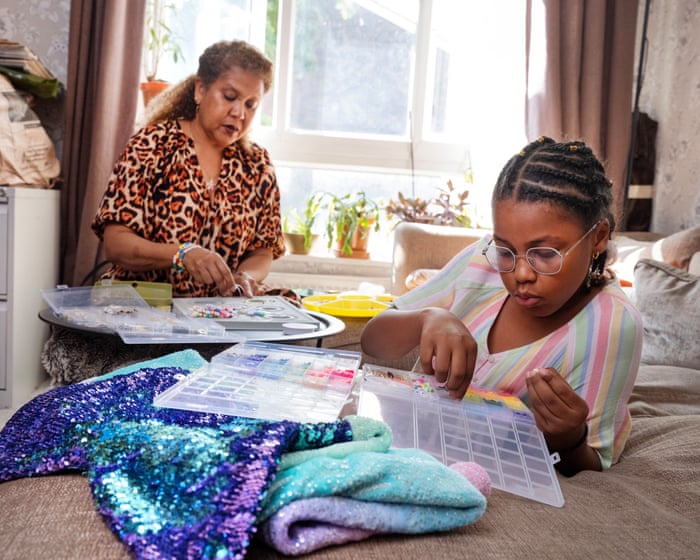The UN’s migration agency reports that over 36,000 people have fled Sudan’s Kordofan region, located east of Darfur, since last Saturday. This exodus began a week after the paramilitary Rapid Support Forces (RSF) captured the city of El Fasher.
The central area, strategically positioned between Darfur and the Khartoum-Riverine region that includes the capital, has recently become a new front in the two-year civil war between the Sudanese armed forces (SAF) and the RSF.
According to the International Organization for Migration, approximately 36,825 individuals left five areas in North Kordofan state between October 26, when El Fasher fell to the RSF, and October 31. The UN noted that most of these people traveled on foot to Tawila, a town west of El Fasher that is already hosting more than 652,000 displaced individuals.
On Monday, residents of North Kordofan reported a significant increase in the presence of both RSF and army forces throughout the state’s towns and villages. Both sides are competing for control of El Obeid, the state capital and a crucial logistics and command center that connects Darfur to Khartoum and includes an airport.
In a video shared by the RSF on Sunday, a member stated, “Today, all our forces have converged on the Bara front here,” referring to a city north of El Obeid. The RSF claimed it took control of Bara last week.
Suleiman Babiker, a resident of Um Smeima west of El Obeid, told Agence France-Presse that the number of RSF vehicles has risen since the group seized El Fasher. “We stopped going to our farms, afraid of clashes,” he said. Another resident, who requested anonymity for safety reasons, also reported a substantial increase in army vehicles and weapons in the areas west and south of El Obeid over the past two weeks.
Last week, Martha Pobee, the UN assistant secretary general for Africa, expressed concern about “large-scale atrocities” and “ethnically motivated reprisals” by the RSF in Bara. She warned that these actions mirror patterns seen in Darfur, where RSF fighters have been accused of mass killings, sexual violence, and abductions targeting non-Arab ethnic groups following the fall of El Fasher.
On Sunday, Pope Leo called for an immediate ceasefire and the establishment of humanitarian corridors in Sudan, stating that attacks on civilians and obstacles to aid are causing “unacceptable suffering.”
Also on Sunday, Sudan’s ambassador to Egypt, Imadeldin Mustafa Adawi, accused the RSF of committing war crimes in El Fasher. He declared that the Sudanese government will not negotiate with the paramilitary group and urged the international community to label it as a terrorist organization. This report includes contributions from Agence France-Presse.
Frequently Asked Questions
Of course Here is a list of helpful and clear FAQs about the situation in El Fasher based on your request
FAQs The Fall of El Fasher and the Displacement of Sudanese Civilians
BeginnerLevel Questions
1 What happened in El Fasher
The city of El Fasher in Sudan was captured by the Rapid Support Forces This major military event has caused a severe humanitarian crisis
2 Who are the RSF
The Rapid Support Forces is a powerful paramilitary group in Sudan that has been fighting the Sudanese Armed Forces for over a year in a brutal civil war
3 Why are people fleeing El Fasher
People are fleeing to escape the intense fighting widespread violence and the threat of death Essential services like food water and healthcare have collapsed making the city uninhabitable
4 How many people have fled and where are they going
According to a UN agency at least 36000 people have fled They are moving to other slightly safer areas within Sudan but these locations are often already overwhelmed and lack basic resources
5 What is the overall impact of this event
The fall of El Fasher is a major turning point in the war giving the RSF significant control The immediate impact is a massive new wave of displaced people who need urgent food water shelter and medical care
Advanced Detailed Questions
6 Why was El Fasher so important in the Sudan conflict
El Fasher was the last major city in the Darfur region held by the Sudanese army Its capture gives the RSF dominance over the entire Darfur region which is a strategic and symbolic victory for them
7 What are the main challenges for the people who have fled
The challenges are immense
Safety They are still in a war zone and vulnerable to attack
Basic Needs There is a critical lack of food clean water and shelter in the areas they are fleeing to
Disease Crowded conditions and poor sanitation can lead to outbreaks of diseases like cholera and malaria
Trauma Many have witnessed violence and lost family members suffering severe psychological trauma
8 What is the international community doing to help
UN agencies and aid organizations are trying to



